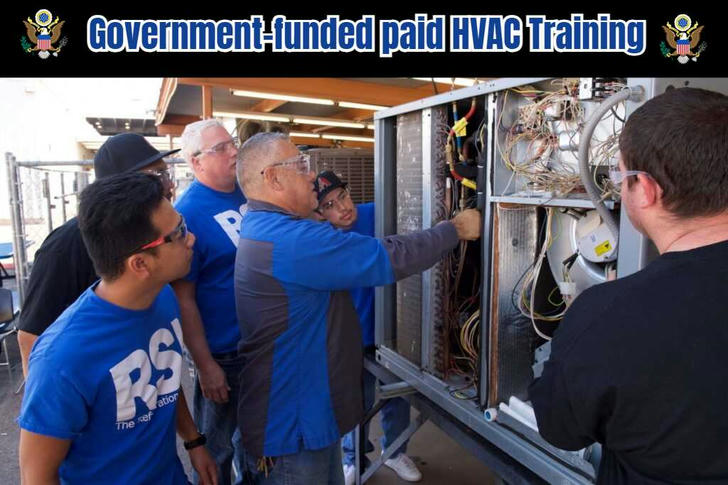Unlock Your HVAC Career: Government-Funded 12-Week Training with $20-$28/Hour Pay ✨
Embarking on a career in HVAC (Heating, Ventilation, and Air Conditioning) offers a promising path with strong job prospects and competitive wages. A government-funded 12-week training program can accelerate entry into this field, equipping candidates with essential skills and certifications. This guide explores the benefits of HVAC training, available programs, apprenticeship opportunities, and strategies for securing a well-paying job in this high-demand sector.

🔍 Why Choose HVAC Training? High Demand and Competitive Pay
The HVAC industry is growing steadily due to rising demand for energy-efficient climate control systems in residential and commercial buildings across the United States. Skilled technicians are essential for installation, maintenance, and repair services, creating a robust job market.
| Key Highlights | Details |
|---|---|
| Hourly Wage Range | $20 to $28 for entry-level positions |
| Job Stability | Strong due to continuous demand |
| Career Advancement | Opportunities for growth and specialization |
✅ The combination of solid pay and continuous demand makes investing time in HVAC training a smart career move.
📝 Overview of Government-Funded 12-Week HVAC Training Programs
Government-funded HVAC training programs are widely available across the U.S., often supported by initiatives such as the Workforce Innovation and Opportunity Act (WIOA). These programs typically last 12 weeks or less and focus on practical skills like system installation, maintenance, and repair.
| Program Features | Description |
|---|---|
| Certifications Prepared | EPA 608 Refrigerant Handling, NATE Ready to Work |
| Delivery Formats | In-person, online, hybrid |
| Example Institutions | Warren County Career Center (Ohio), EnergyWise HVAC Solutions (North Carolina) |
🔹 These programs prepare students for immediate workforce entry with hands-on training and recognized credentials.
🏢 Navigating Apprenticeships: Real-World Experience with Modern Energy
Apprenticeships provide invaluable hands-on experience under expert supervision, speeding up skill development and job readiness.
| Apprenticeship Details | Information |
|---|---|
| Hourly Pay | $20 - $28 |
| Typical Tasks | Installing mini-split systems, mounting/wiring indoor units, running ductwork |
| Benefits | Health insurance, 401(k) with matching, dental, paid time off |
💡Maximizing Your Success: Certifications, Benefits, and Career Growth
Certifications are key to standing out in the HVAC job market.
| Examples | EPA 608, HVAC Excellence Employment Ready |
|---|---|
| Impact | Higher wages, better job security |
| Apprenticeships | Valued as practical experience complementing formal education |
🏢 Employment benefits often include employer-sponsored health insurance, retirement plans, and paid leave, enhancing job satisfaction.
📝 Common Applicant Questions
Q1: Who can apply for government-funded HVAC training?
Eligible applicants include unemployed individuals, recent high school graduates, veterans, and workers seeking a career change.
Q2: Do I need prior experience?
No. Most programs accept beginners and provide both classroom instruction and hands-on learning.
Q3: Are the training programs really paid?
Yes. Many apprenticeships and state-funded programs include hourly wages during training, often starting around $20-28/hour.
Q4: How long does the training last?
Programs typically last 12 weeks , depending on whether they lead to certification or a full apprenticeship.
Q5: What certifications can I earn?
Common certifications include EPA 608 Refrigerant Handling, NATE, and HVAC Excellence Employment Ready.
Q6: Will I have a job after completing the program?
Most trainees receive direct job placement through employer partnerships or apprenticeship networks upon certification.
